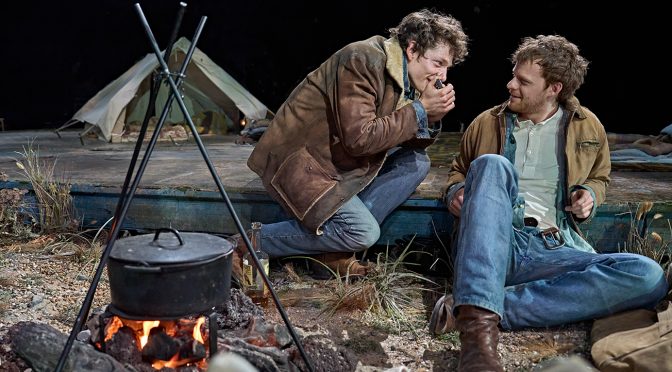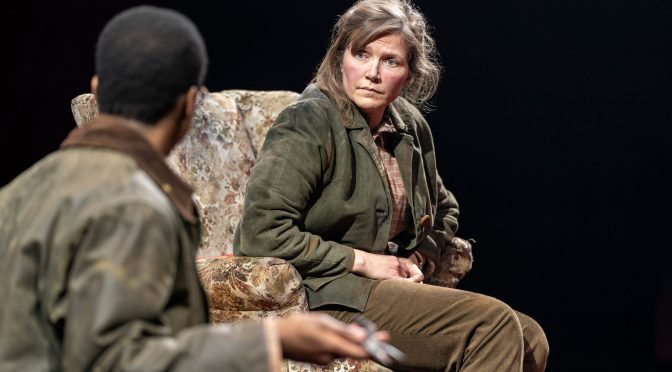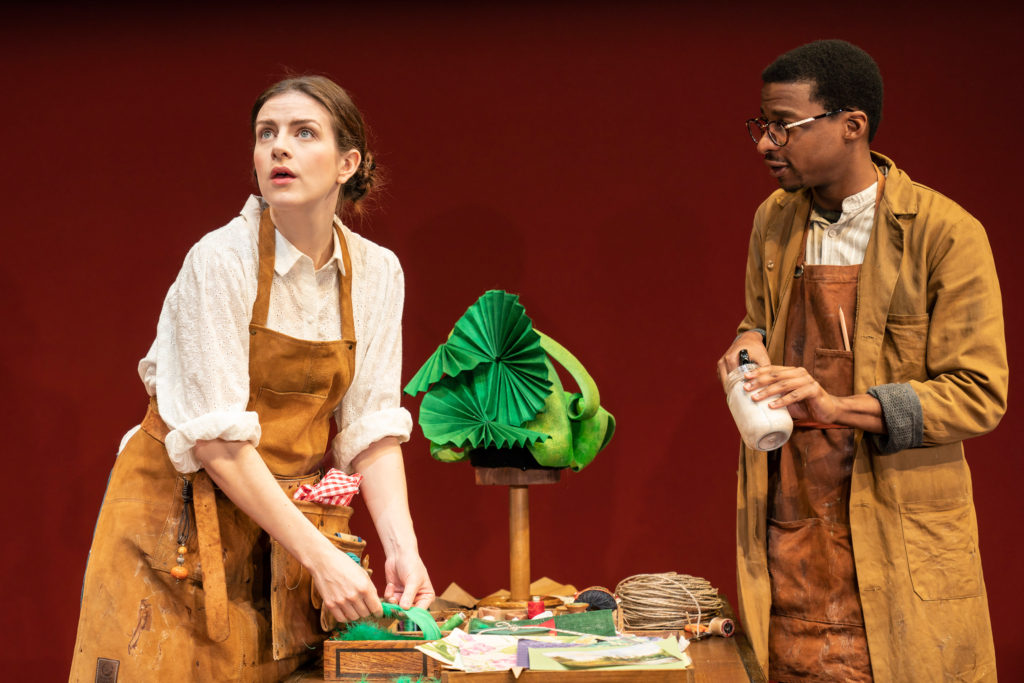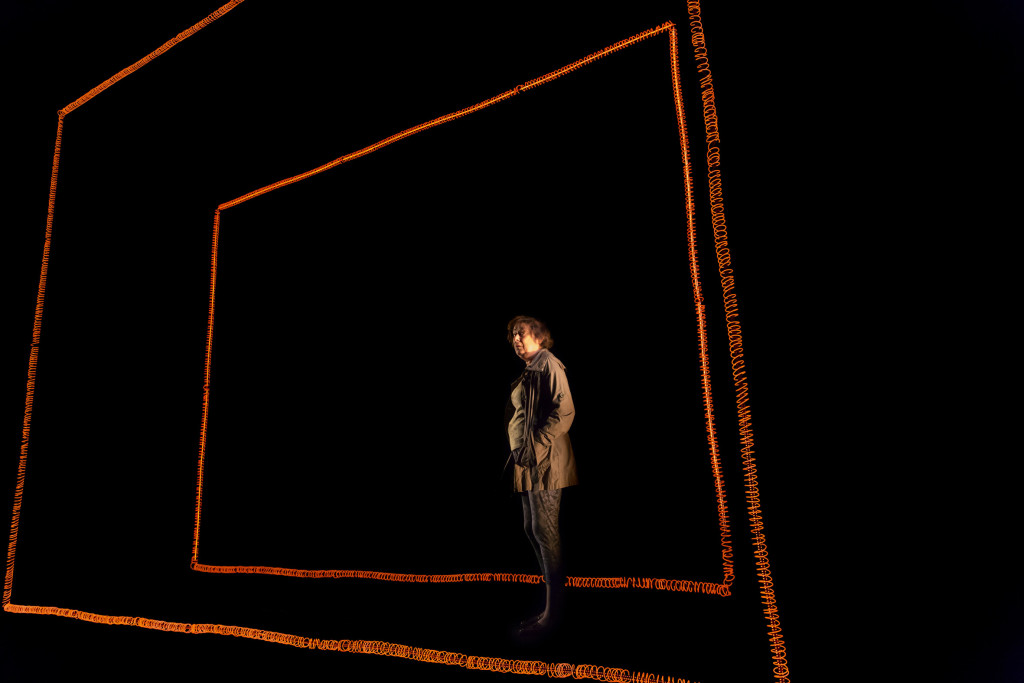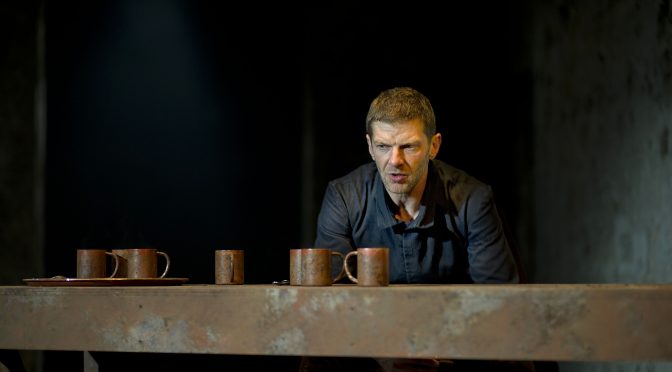Annie Proulx’s short story is about atmosphere rather than action. The troubled love affair between cowboys Ennis and Jack is a powerful tale of repression and loss, but part of what makes it special is that not that much really happens. Bringing the story to the stage is a tough call that Ashley Robinson’s adaptation and Jonathan Butterell’s direction handle intelligently. It is a shame that the results are mixed.
Butterell has secured fine performances from the show’s exciting casting. Here are two West End stage debuts to take note of. Stars from the States, Mike Faist and Lucas Hedges, are strong as Jack and Ennis respectively. Hedges makes the taciturn Ennis a strong figure whose torment over his sexuality bubbles under the surface. Faist’s Jack is charismatic, full of energy and humour, but the audience can still see his pain. As for that all-important chemistry, Butterell takes advantage of the venue’s intimacy to create quiet, moving moments.
Despite the enjoyable performances, with Faist and Hedges easily holding the stage and showing impressive confidence, the pace overall feels regrettably rushed. A sense of time passing and opportunities lost isn’t conveyed and the show comes close to being cold. Jack’s statement that “we could have had a good life together” comes as something of a shock – it seems we are near the end of the show too soon. The meditative quality of the source material is lost.
There is little sense of menace in the piece. The men’s employer is aware of the affair and simply disapproves, while in the final scene Jack’s mother seems sympathetic. As part of a lack of threat, Jack’s wife is reduced to a slim figure (despite Emily Fairn’s commendable efforts in the role). It becomes hard to remember the risks being run by the couple’s romantic getaways and why the two cannot live together. Meanwhile, there is the device of an ‘older’ Ennis watching the action. It’s not a bad idea, and adds some melancholy moments, but having him continually on stage means that the role blends into the background, despite Paul Hickey’s commitment.

Firmer ground come with the show’s most innovative move – the music. Described as a play with songs, rather than a musical, it’s the compositions by Dan Gillespie Sells that add most to seeing the story on stage. Eddi Reader performs with an excellent band – it all sounds wonderful. What we hear, with the aid of Christopher Shutt’s impressive sound design, provides romance, tension, humour and, above all, atmosphere. The pace that the show needs is clearest here – more music might have led to more emotion.
Until 12 August 2023
Photo by Manuel Harlan

